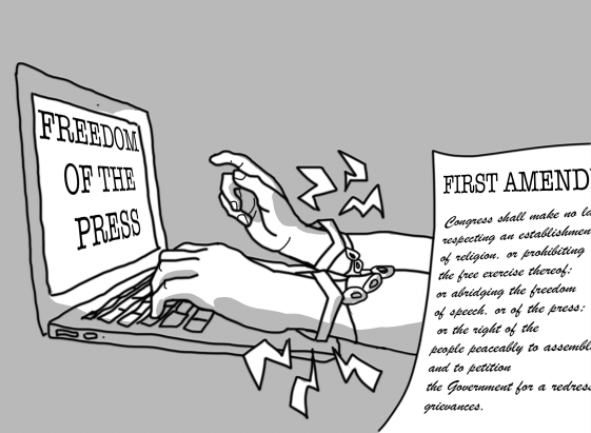From the newspaper raiding in Marion County, Kansas, to book bannings in Florida, censorship seems to be at an all time high across the country.
Within recent years, strategies similar to those used in the Red Scare in the ‘50s have cropped up.
During the Red Scare, people like then-senator Joe McCarthy used fear-mongering tactics and public accusations to silence those practicing basic free speech rights.
The term “McCarthyism” has been coined for people with similar practices of what McCarthy once did. It’s no secret that similar behavior is coming back to light.
It’s things like this that create that sinking feeling in your chest — the human life is short, and with that, so is our memory. You can’t help but wonder is history doomed to repeat itself? New fear, new enemy, same tactics.
The Kansas Student Publications Act, which has protected students’ freedom of the press since 1992, allows our paper to function.
If one of us took five minutes to drive to Missouri and tried to publish this article there, it could be pulled for controversy and the criticism it places upon those in power. We as a publication staff are incredibly lucky to have our voices protected. Kansas is one of 17 to protect the rights of its student journalists.
Acts like this are deeply important to raise voices needing to be heard. Censorship sows hate into the world; the less you allow disparaged communities to speak the more hate enters the world.
In data collected by the FBI’s Crime Data Explorer, the number of hate crimes pursued increased by more than 4,000 cases from 2013-2015 to 2019-2021. This is just cases pursued — it doesn’t include cases not pursued or not reported.
The more censorship rises, the more hate does, and if we continue down this path, we will see the consequences.
No one who quiets sensitive topics is your friend. Information is not the enemy, and it is unconstitutional to treat it like it is.




